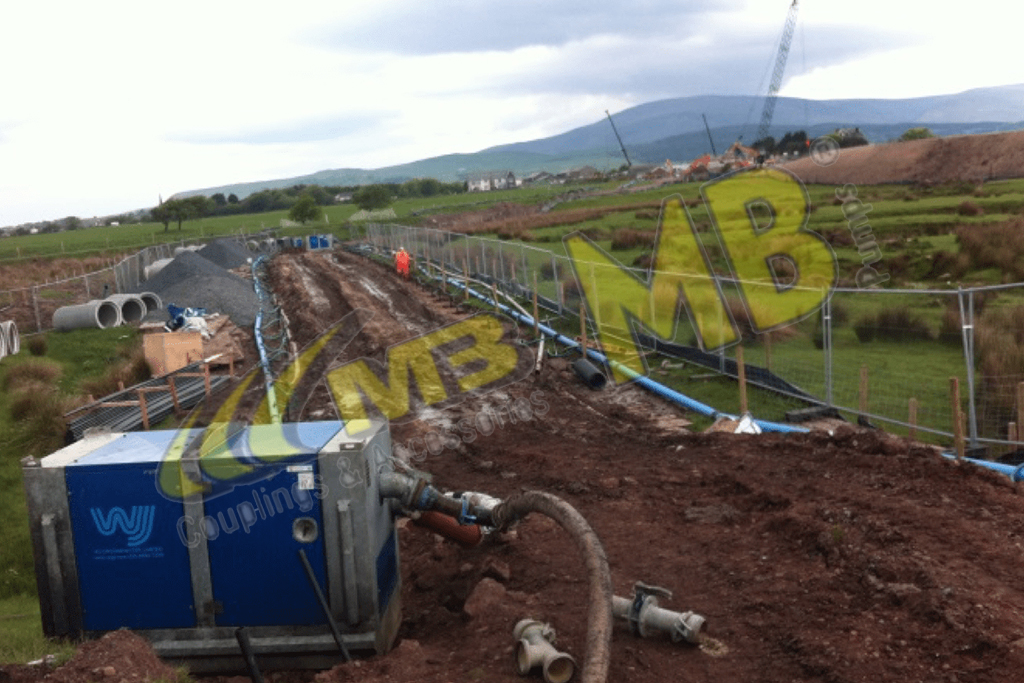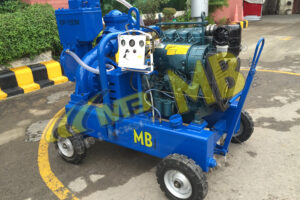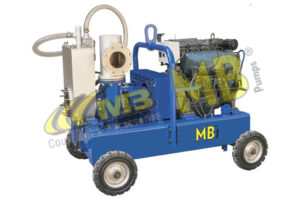Wellpoint dewatering is an important method in construction and civil engineering, especially when dealing with groundwater management issues. It is critical in managing groundwater levels to ensure safe and efficient excavation and building. In this guide brought to you by MB Exports, we delve into the intricacies of wellpoint dewatering systems in Australia, exploring their benefits, components, and applications.
What exactly is Wellpoint Dewatering?
Wellpoint dewatering is a groundwater control system that drains water from saturated soils, making excavation and building safer and more efficient. The technique is frequently used in foundation building, tunnelling, trenching, and pipeline installation.
The Wellpoint Dewatering Process :
Wellpoint dewatering is a very successful method of lowering groundwater levels, resulting in a stable and safe working environment. MB Exports specialises in wellpoint dewatering systems, which are particularly intended to remove water from unsettled or unstable ground situations such as weak foundations and trenches. This method entails deliberately placing small-diameter and shallow wells around the region. These wellpoints are linked together by a major pipe system and fed by a high-efficiency water pump.
The MB Exports wellpoint dewatering pump is ideal for wellpoint applications due to its high performance. The jetting tubes are used to install the wellpoints, and the water pump quickly removes the water, resulting in a dramatic fall in water levels.
The MB Exports pump has a dependable filtration mechanism that assures the discharged water is properly cleansed and safe to be transported to another chosen place, whether it’s into the sewer system or into a neighbouring body of water. This method is both time-efficient and cost-effective for regulating groundwater levels in a variety of construction and dewatering operations.
Advantages of Wellpoint Dewatering :
Ground water control : Wellpoint dewatering lowers the water table, minimising soil saturation and providing a stable operating environment. It permits development in places with high groundwater levels.
Increased Stability : Dewatering improves soil strength and stability by lowering pore water pressure in the soil. This eliminates the possibility of soil collapses, cave-ins, and other building dangers.
Cost and Time Efficiency : Wellpoint dewatering can save construction times by providing a dry working environment. It avoids the need for substantial excavation and allows for continuous development.
Environmental Considerations : By preventing surplus water from being dumped into adjacent regions, wellpoint dewatering reduces the environmental effect. It also helps to remove pollutants from groundwater.
Wellpoint Dewatering Considerations :
Site Investigation : Before performing wellpoint dewatering, a detailed study of the site’s hydrogeology is required. Soil type, groundwater flow, and water quality must all be considered.
System Design : The wellpoint system’s design and layout are critical to its efficiency. The needed pumping capacity, wellpoint spacing, and header pipe arrangement are all factors to consider.
Permits and Regulations : Permits for wellpoint dewatering projects may be required by local authorities. Environmental standards and discharge restrictions must be followed.
Monitoring and Maintenance : Effective monitoring and maintenance are of paramount importance in the realm of wellpoint dewatering. Regular upkeep, ideally scheduled every 3 to 6 months, ensures the optimal performance of wellpoint dewatering systems. This proactive approach involves meticulous inspection and servicing of components like filters, pumps, valves, and the wellpoint network itself. By addressing potential issues before they escalate this strategy guarantees uninterrupted operation. And extends the system’s lifespan. And underscores a commitment to both efficiency and environmental responsibility.
Conclusion :
Finally, wellpoint dewatering systems are a very useful tool for managing groundwater. They provide cost-effective solutions, improve project efficiency, and encourage a safe workplace. Look no farther MB Exports for high-quality wellpoint dewatering pumps in Australia. Our selection of dependable and efficient pumps provides successful groundwater control in your building projects. Contact us today to learn more about our wellpoint dewatering solutions and how they may help you with your next project.
Read more about the EFFICIENTLY COMBAT WATERLOGGING WITH DEWATERING PUMPS




